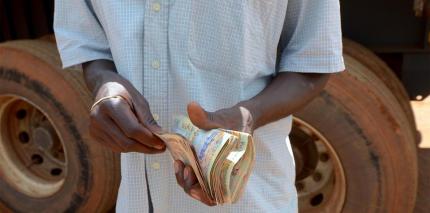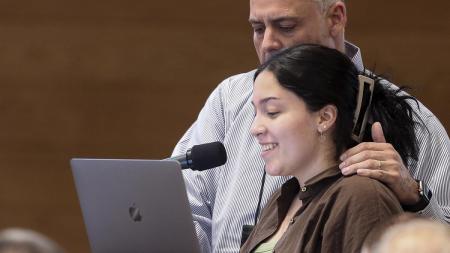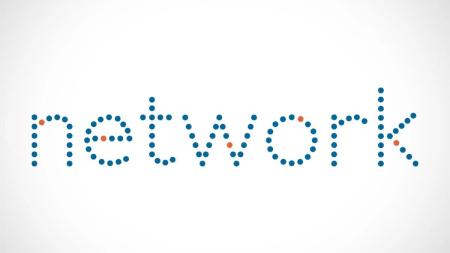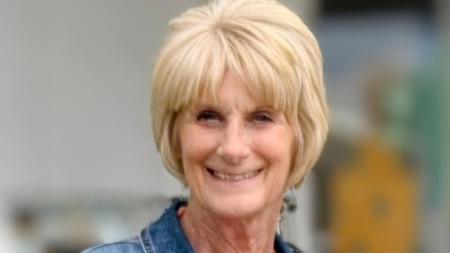The Big Impact of Small Loans

World Renew
Have you ever experienced poverty to such a degree that you’ve had to consider prostituting yourself so that you could feed your family?
Have you thought about taking out a loan with a 30 percent interest rate in order for your children could go to school?
These are some of the real choices facing men and women around the world who lack access to capital to invest in their businesses or to help bridge their income until a crop can be harvested.
Thanks to World Renew’s Village Savings and Loans (VSL) programs, more than 80,000 people in 3,200 communities have overcome these obstacles and are on a path to financial independence.
Over the next 15 years, the program will be expanded even further to help thousands of additional people thanks to the many generous people who contributed gifts towards a $2.5 million Village Savings and Loan fund.
“In much of the world, men and women are caught in a lonely cycle of poverty. They have no savings to rely on when unexpected needs arise, and do not own anything of enough value to use as collateral for loan from a bank,” said Ida Kaastra-Mutoigo, World Renew Canadian director.
“In order to provide for their families, they face moral dilemmas and have to make tough decisions that can put them even further into poverty. World Renew’s Village Savings and Loan programs provide a way to break this cycle.”
Festo Madira’s story is an example. Madira lives in the village of Bukokwa, Tanzania. He has always been an ambitious, hardworking man with a desire to provide well for his family. Over the years, he has tried out several different methods of earning an income, including agricultural activities, fishing, and small business ventures.
As a renter, Madira did not own any land that he could use as collateral to get a loan. With only his own savings to rely on, his business ventures failed to produce enough of a profit to meet his family’s needs.
In 2012, Madira attended a session about village savings and loan groups through World Renew’s local partner, the AICT-Diocese of Geita. He learned the benefits of working with his neighbors and saving small amounts of money every week. He started to see a new way forward for his family.
Through village savings and loan groups men and women in a community meet weekly and save small amounts of their own money in a group savings pool. The savings amount sometimes starts with only pennies a week.
Once the fund is large enough, the group uses it to provide small loans to each other. They set the loan amounts, the repayment schedule and the interest rates. These initial loans start at only $10 to $50 per person — far below the threshold for banks or microfinance institutions to consider, but enough to make a real difference to those in the groups.
Men and women use their loans to buy and sell fish, make and sell soap, or purchase and press peanuts to turn into peanut oil. When the members repay their loans, the fund grows and additional, larger loans can be given. Soon, people are able to set up small kiosks or start a tailoring or hair dressing business. It provides them with a permanent way out of poverty!
After some months of saving, Madira was eligible to receive a loan from his savings group. He used this loan to purchase a small piece of land just outside the village. He then took out another loan and used it to buy tomato seedlings to plant on this property.
Madira was able to sell his first harvest of tomatoes for 150, 0000 Tanzanian shillings (approximately $686 USD). This gave him enough to pay back his loan. With his profit, he even started building a new house for his family.
Today, the profits from Madira’s tomato farm continue to grow. He has finished building a two-bedroom house for his family. Madira has also been able to open a shop where he sells farming products, such as fertilizer and livestock feed. They are now freed from paying rent and are enjoying a level of stability and security they had not had before.
What’s more, he and his wife can afford to send their children to school, so they can learn about God’s world and grow in their skills in the classroom.
“My next plan is to purchase a cow, so I can have milk and calves that I can sell to people in my community,” Madira said.
Whether they are called savings groups, micro-enterprise groups, or credit unions, Village Savings and Loan (VSL) programs have been an integral part of World Renew’s ministry for the past 50 years.
While the money for these loans come from group members themselves, outside resources also play a key role. World Renew and its partner organizations invest a great deal into setting up and supporting these groups.
This outside support provides crucial training that is critical to the community groups’ success.
Members learn group process, money management, principles of stewardship and leadership before their program begins. World Renew’s church partners support the groups and help them deal with specific problems and issues as they arise.
Many of the group members are women who have never before had the opportunity to earn an income or run a business. The support they receive from World Renew and its partners is a tremendous blessing to them.
In 2012, World Renew received gifts of $1.5 million to start a Village Savings and Loan Fund that would grow this program even further. The goal was to raise an additional $1 million for the fund, so that World Renew would have $2.5 million to distribute over 15 years to expand the ministry to more communities and countries.
World Renew is grateful to announce that by December 2015, many men, women and groups had come forward to meet this financial goal.
The gifts given to the VSL Fund will be allocated over a 15-year period. Half will be used to support the development of more village savings and loan groups and to build the capacity of existing groups.
The other half will be distributed as small grants to World Renew’s partners to enable them to pilot innovative approaches to microfinance, credit unions, marketing and value-chain enhancement.
This could include innovative use of information and communications technologies, the introduction of processing or product enhancement technologies and other livelihood development activities.
“What a difference a loan makes, more specifically a loan generated from the savings of the community itself,” said Mutoigo.
“This is also where the greatest gift comes in. The joy of the members of these VSL programs is in no small part due to the encouragement and support of the church.
“Local church leaders train the community facilitators on the values and practices of good stewardship and encourage the savings groups in their communities. The sense of community that these savings groups and their church facilitators demonstrate is palpable, something most churches in North America would swoon over.”


